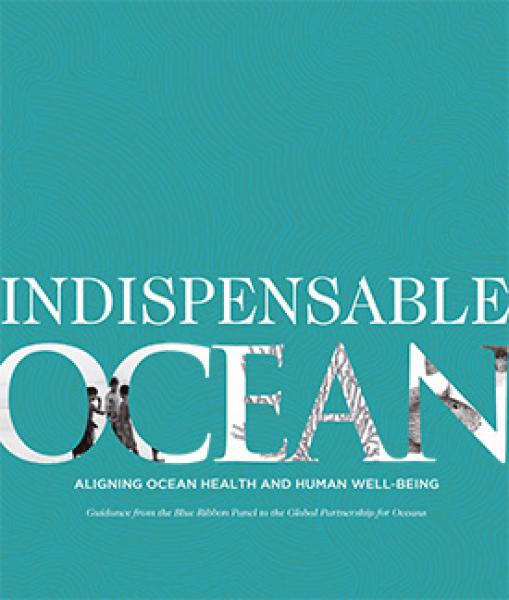Aligning Ocean Health and Human Well-being
Thursday, 24 October 2013

A Blue Ribbon Panel report spearheading a global strategy for aligning ocean health and human well-being has recently been released. The report, entitled Indispensable Ocean: Aligning Ocean Health and Human Well-Being, was released by the Blue Ribbon Panel on 16 October. The Blue Ribbon Panel received inputs from a number of external experts, including the East Asian Seas Council Chair Ambassador Mary Seet-Cheng, who presented the work of PEMSEA during a panel meeting in Singapore last June.
The Blue Ribbon Panel, comprised of 21 business, government, conservation and academic leaders and experts from 16 countries, emphasized that without action to turn around the declining health of the ocean, the consequences for economies, communities and ecosystems will be irreversible.
"Ocean change is climate change and vice versa," said panel chair and ocean adviser to the Intergovernmental Panel on Climate Change (IPCC) Ove Hoegh-Guldberg. "With looming threats of rising sea levels, warmer waters and a growing human population we need healthy oceans and coasts to mitigate climate change, feed billions and protect coastal communities."
But there is good news: solutions exist that benefit both oceans and economies, according to the panel's report.
Convened by the World Bank to advise the Global Partnership for Oceans (GPO), the Blue Ribbon Panel includes high-level players ranging from CEOs of some of the largest seafood companies in the world — to government officials and prominent marine conservationists.
According to the panel, fragmented approaches that fail to consider social, political, economic and ecological relationships will fail to meet the complex challenges facing ocean health. The report calls for an integrated approach to ocean investment and emphasizes the essential role of public-private partnerships.
The panel agreed that the Global Partnership for Oceans is a platform that brings together the multi-stakeholder support, technical expertise and finance needed to change the course on oceans.
"Getting to healthy oceans is a global challenge that needs the concentrated effort of big and small business, government, science and the people," said Hoegh-Guldberg. "Though they brought very different world views, everyone on this panel agreed that we can't keep going with business-as-usual and all parts of society must be part of the solution."
The panel agreed there is no "silver bullet" to resolving urgent ocean challenges. Therefore, it proposes these five principles to ensure effective GPO investments: (1) sustainable livelihoods, social equity and food security; (2) a healthy ocean; (3) effective governance systems; (4) long-term viability and (5) capacity-building and innovation.
The Panel's principle-based strategy provides an approach to prioritize where, when and how the GPO can take action with high impact. The panel recommends that the principles be incorporated into all levels of reform — from fisheries management to incentives for pollution reduction to habitat restoration.
"This is a critical time in history," said panelist Tuiloma Neroni Slade, Secretary-General of the Pacific Islands Forum. "All levels of society and all stakeholders need to combine in joint action as a response to this very global problem."



